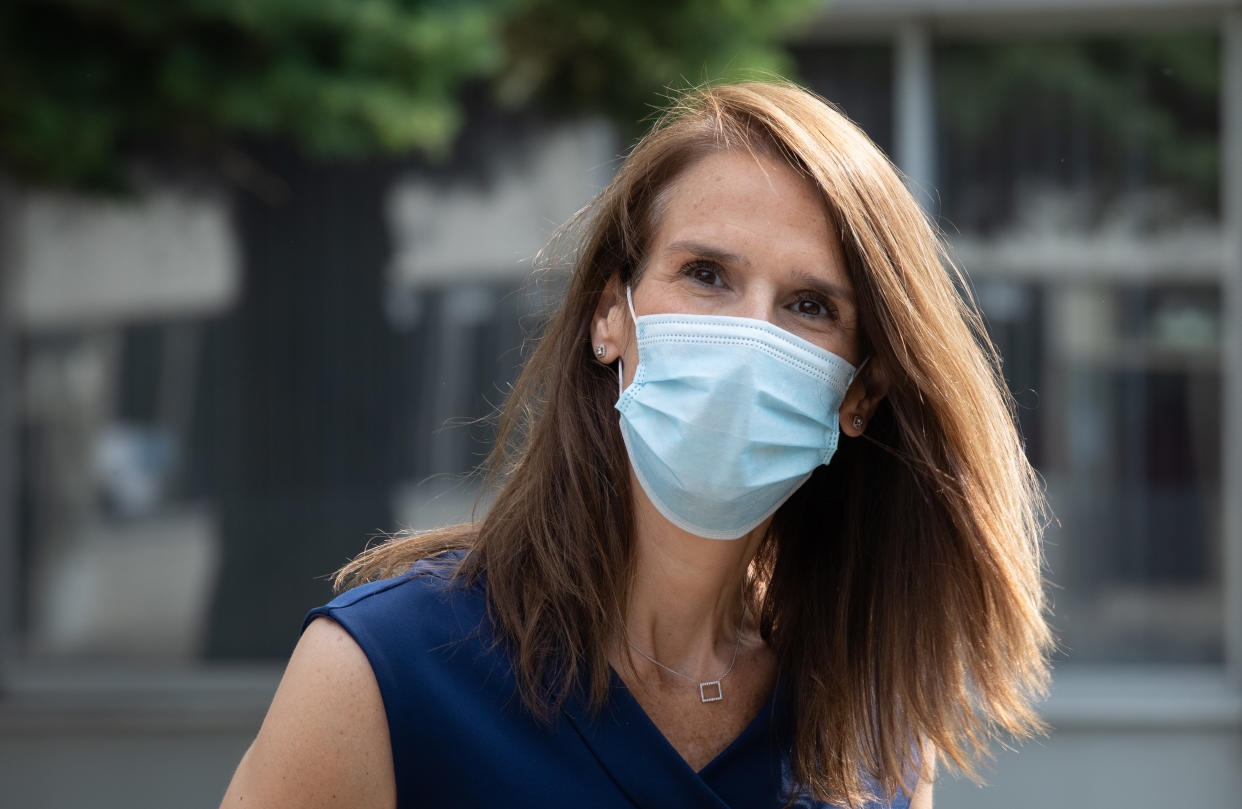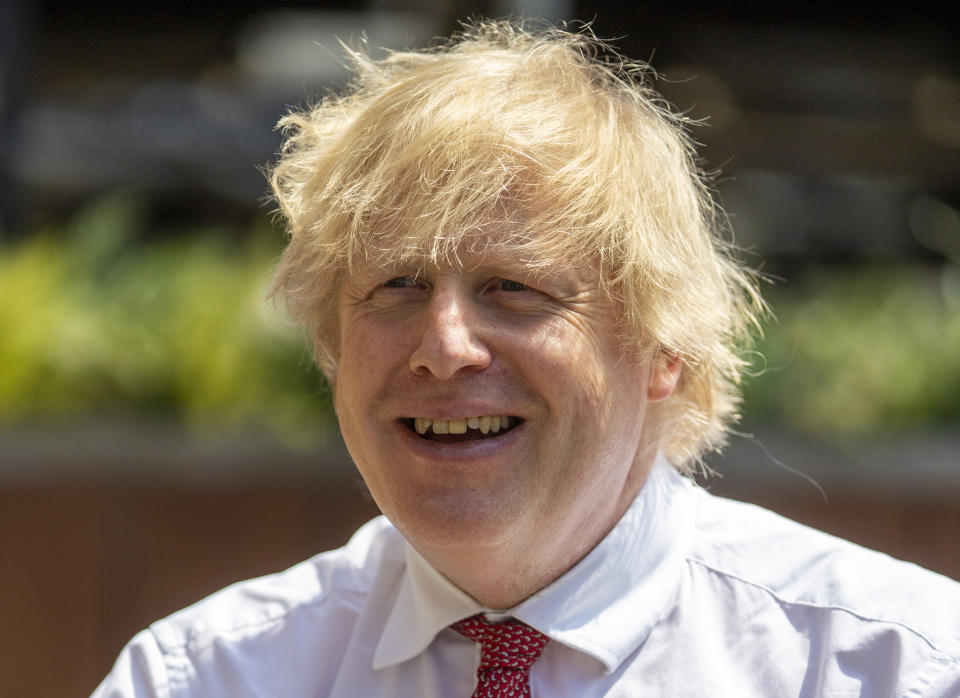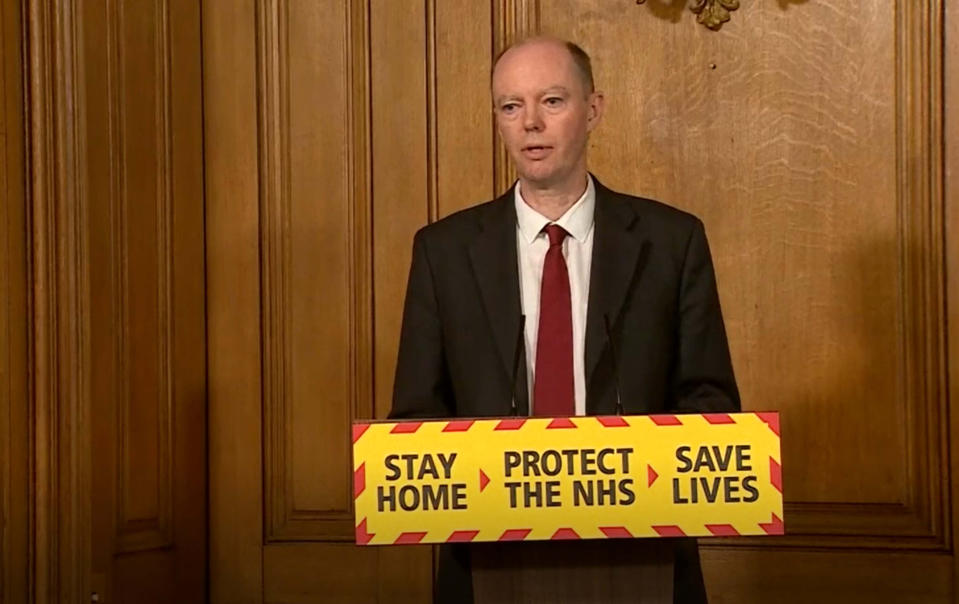'The government is sending the message the pandemic is over and it isn't', warns expert

An expert has warned the lifting of lockdown restrictions could be “sending the message the pandemic is over”.
Some semblance of life as we once knew it is due to return in England on 4 July. Pubs, restaurants and museums are just a few of the public spaces that will reopen, albeit with social distancing.
While welcome news for many, official statistics show the decline in new confirmed coronavirus cases in the UK has plateaued, with 1,218 on 18 June compared to 1,118 a week later.
The lifting of restrictions on 4 July coincides with a recent move to reduce social distancing from two metres to “one metre plus”.
Professor Christina Pagel from University College London (UCL) has warned this, combined with the end of the daily Downing Street press briefings, “effectively messages the pandemic is over”.

‘Lots of risks’ with lifting restrictions
As well as new coronavirus cases levelling off, the number of people dying with the infection has plateaued.
On 18 June, 137 coronavirus-related fatalities occurred across the UK, compared to 149 deaths one week later.
Patients who die with the coronavirus typically become infected three to four weeks earlier.
Professor Pagel noted these individuals would therefore have caught the virus before the recent relaxation of restrictions.
An example is the introduction of “support bubbles” on 13 June, which allow people who live alone in England to visit one other household and even stay the night.
England’s chief medical officer Professor Chris Whitty said on 23 June he would “be surprised and delighted if we weren’t in this current situation through the winter and into next spring”.
During an Independent Scientific Advisory Group for Emergencies (Sage) briefing on 26 June, Professor Pagel pointed out if these 100 to 150 daily deaths continue to occur over the next nine months or so, tens of thousands of people will lose their lives.
Independent Sage was formed to provide a “constructive” alternative to the official Sage team.
Professor Pagel also questioned why the reopening of pubs and restaurants was taking place on a Saturday, stressing the government is “adding a lot of risks”.

‘This is not the end of the lockdown’
Downing Street announced on 23 June the daily coronavirus press briefing was being scrapped. Going forward, the broadcast will be made on an “ad hoc” basis to “coincide with significant announcements”.
“They’re sending the message the pandemic is over,” said Professor Pagel.
She pointed out Germany – once praised for its handling of the outbreak – has seen a rise in cases, which prompted a regional lockdown in the state of North Rhine-Westphalia.
Professor Whitty himself has said: “We should be planning for this [the coronavirus] for what I consider to be the long haul out into 2021”.
Images of people flocking to Bournemouth Beach on 25 June, the hottest day of the year so far, prompted the chief medical officer to tweet: “If we do not follow social distancing guidance then cases will rise again”.
When asked about these images during the Independent Sage briefing, Professor Deenan Pillay from UCL stressed: “This is not the end of the lockdown; this is about loosening the restrictions slightly.”
Professor Stephen Reicher from the the University of St Andrews agreed, but added measures should be in place to reduce the risk of infection, rather than shutting public spaces entirely.
Health secretary Matt Hancock has said the government will close beaches if necessary. He added he was reluctant to do this, however, “because people have had a pretty tough lockdown”.
“People often don’t go out with the intention of crowding,” said Professor Reicher.
“We need to facilitate people to be able to socially distance.”
In a pub, this may involve having people sit side to side rather than face to face.
When asked about sports training, Professor Pagel said: “Ask people [players] not to change until they get home, don’t share water bottles, concentrate on drills that don’t require tackling”.
What is the coronavirus?
The coronavirus is one of seven strains of a virus class that are known to infect humans.
Others cause everything from the common cold to severe acute respiratory syndrome (Sars), which killed 774 people during its 2002/3 outbreak.
Since the coronavirus outbreak was identified at the end of 2019, more than 9.6 million cases have been confirmed worldwide, according to Johns Hopkins University.
Of these cases, over 4.8 million are known to have recovered.
Globally, the death toll has exceeded 490,000.
The coronavirus mainly spreads face to face via infected droplets expelled in a cough or sneeze.
There is also evidence it is transmitted in faeces and survives on surfaces.
Symptoms typically include fever, cough and loss of taste or smell.
The infection itself has no “set” treatment, with most patients naturally fighting it off.
The steroid dexamethasone is being used in hospitals throughout the UK to reduce the risk of death among patients on ventilators or oxygen.
Officials urge people ward off infection by washing their hands regularly and maintaining social distancing.
Coronavirus: what happened today
Click here to sign up to the latest news, advice and information with our daily Catch-up newsletter
Read more about COVID-19
How to get a coronavirus test if you have symptoms
How easing of lockdown rules affects you
In pictures: How UK school classrooms could look in new normal
How public transport could look after lockdown
How our public spaces will change in the future
Help and advice
Read the full list of official FAQs here
10 tips from the NHS to help deal with anxiety
What to do if you think you have symptoms
How to get help if you've been furloughed



